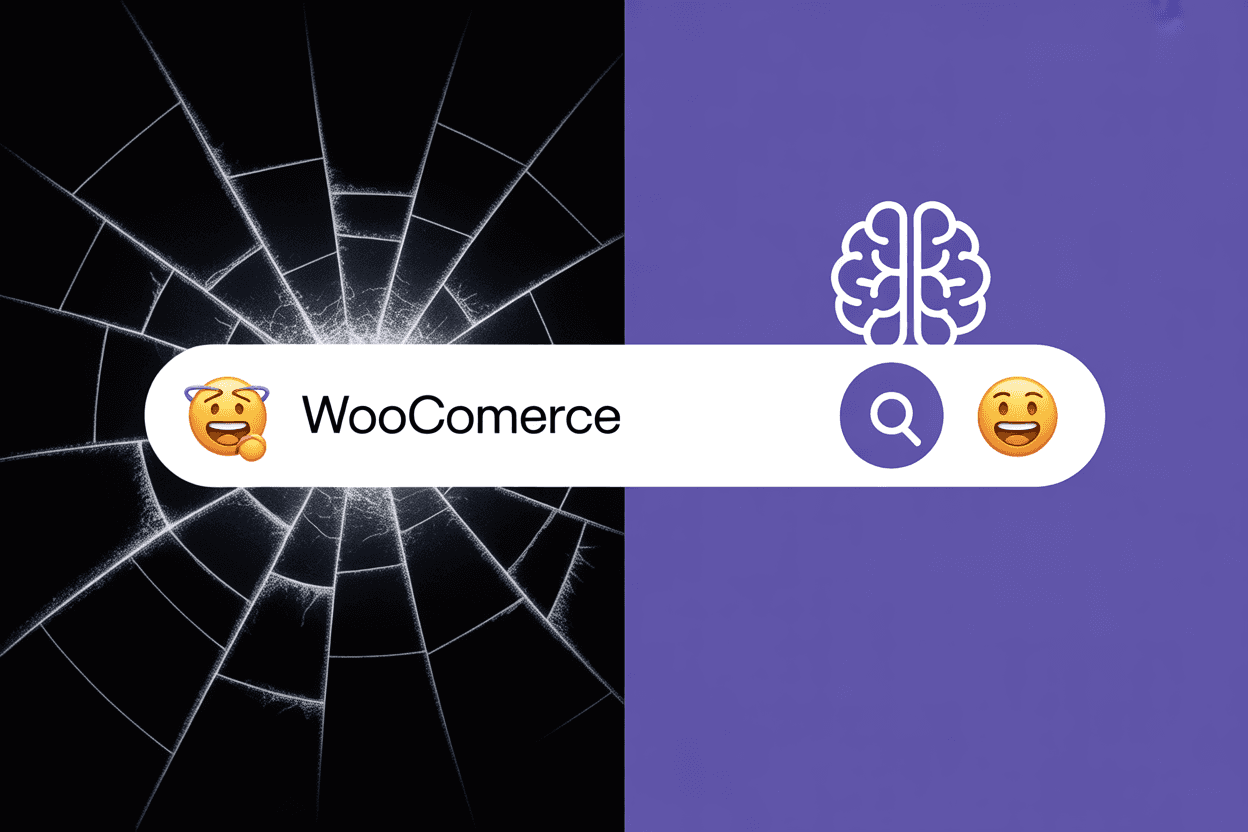
WooCommerce Search Quality: What Makes It Work (Or Not) and How to Fix It Before You Lose Customers (And Your Mind)
Is your WooCommerce search engine acting like a broken compass? This humorous article explains what factors influence search quality and what you can do to ensure customers finally find what they're looking for (before they flee to your competitors).
What Affects WooCommerce Search Quality? A Detective's Guide to In-Store Mysteries
When Your Search Bar Plays Tricks on You: The Riddle of (Mis)Matched Results
You type "red sneakers size 38," and your WooCommerce search proudly presents you with green rain boots and a set of gardening tools. Sound familiar? Before you suspect your store has been possessed by a mischievous tech gremlin, it's worth understanding what actually affects search quality. It's not black magic (though it sometimes seems like it!). It's a complex dance of many factors, from product data quality and server configuration to the search engine's own algorithms. Understanding these elements is the first step to making your search bar stop being your enemy and become the customer's (and your conversion's) best friend.
The Main Suspects: Who (Or What) is Responsible for Your (Non)Working Search?
Let's take a closer look at the factors that have the biggest impact on whether a customer finds what they're looking for in your store or runs away screaming:
- Product Data Quality (The One True King!): This is absolutely fundamental. If your products have laconic titles, descriptions copied from the manufacturer (or worse, no descriptions at all!), imprecise attributes, and no tags, then even the most intelligent search engine will be helpless. Garbage in = garbage out. Period.
- Search Engine Configuration (The Devil is in the Details): Are you using the default WooCommerce search or an advanced plugin? What fields does it search (title, description, SKU, attributes)? Does it account for synonyms, typos, plurals? Can it handle semantic search? Settings are crucially important.
- Server and Database Performance: If your server is barely breathing and your database chugs with every query, even the best algorithm won't help. Search must be fast. Customers won't wait forever for results.
- Search Algorithms (The Brains of the Operation): How the search engine ranks results (relevance), how it interprets queries, whether it learns from user behavior – all this depends on the algorithms used. Those based on AI and machine learning are usually light-years better.
- Product Indexing: Are all your products correctly indexed by the search engine? Sometimes problems arise from errors in the indexing process.
- User Behavior Data: Modern systems can use data about what other users click and buy to improve the relevance of results for subsequent people.
It's like cooking a good soup – you need good ingredients (product data), the right recipe (algorithms and configuration), and an efficient chef (server).
How to Diagnose Problems and What to Do to Make It Better? (A Repair Plan for Your Search Engine)
If your search engine is ailing, don't despair. Here are a few steps you can take:
- Audit Your Product Data: Mercilessly analyze your descriptions, titles, attributes. Are they complete, precise, unique? This is your homework number one.
- Check Your Search Configuration: Dive into the settings. See what you can optimize. Maybe it's time for a better plugin?
- Analyze Internal Searches: Check what customers are looking for, what phrases yield no results. This is invaluable feedback.
- Monitor Performance: Make sure your server can handle it. Search results pages should loadlightning fast.
- Consider Implementing Semantic/AI Search: If you have a large catalog and really want to boost search quality, investing in AI-based solutions can be a game-changer.
- Test, Test, Test: Make changes and observe how they affect results and customer behavior.
Improving search quality is a process that requires attention and commitment. But the game is worth the candle – satisfied customers, higher conversion, and less stress for you. Because a good search engine in WooCommerce isn't a luxury; it's a necessity. It's time to make yours start working for you, not against you!